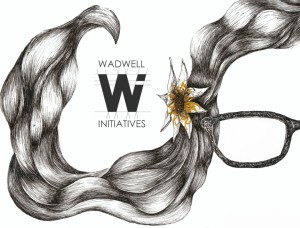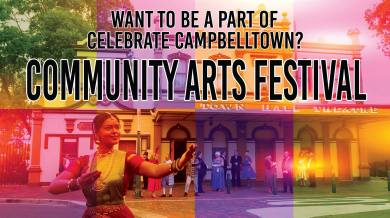 Around the region, inspired individuals commit themselves to improving their skills, deepening their understanding of their art and sharing their observations and experiences. It’s a major challenge where distance isolates people from face to face contact with each other. One of those who has been on this trajectory for more than a decade is Aanisa Vylet, left. Finding herself in the last intake of students for Theatre Nepean (University of Western Sydney) in 2006, her initial disappointment became the tool that turned frustration into determination that she was going to pursue an acting career, no matter what.
Around the region, inspired individuals commit themselves to improving their skills, deepening their understanding of their art and sharing their observations and experiences. It’s a major challenge where distance isolates people from face to face contact with each other. One of those who has been on this trajectory for more than a decade is Aanisa Vylet, left. Finding herself in the last intake of students for Theatre Nepean (University of Western Sydney) in 2006, her initial disappointment became the tool that turned frustration into determination that she was going to pursue an acting career, no matter what.
Aanisa has become an independent actor, writer, director and filmmaker. She is passionate about creating new Australian work and draws extensively on her own experience and observations. After an initial foray in 2011, she undertook the professional course at the Jacques Lecoq School Of Movement and Theatre in Paris in 2014. Most recently, she has created Experience and The Girl and has performed it with Brigitta Brown. It has received rave reviews at Adelaide Fringe Festival, where it continues until February 28. Simultaneous to developing her solo careeer, Aanisa maintains a special commitment to Western Sydney where she has worked on several projects.
At Penrith, it is a similar story for Ian Zammit, below – of pursuing international training and a professional career, while maintaining a commitment to his home town. Ian established Theatre Links in the West, two years ago, with the aim of bringing together professionally-minded theatre arts practitioners and supporters of all levels of experience in western Sydney. After co-founding and operating Emu Heights Theatre Company for five years, directing a  series of well reviewed productions and working with local schools, he was forced to acknowledge that to continue independently needed greater structural support. Theatre Links is the first step in that process and recent meetings have led to constructive discussions about issues that affect small productions, and the need for readings and critical support for new play writing. Ian is a graduate of the Australian Institute of Music and has a BA Hons in Drama and Theatre Studies from Middlesex University in the UK. Once he returned from the UK, he spent more than five years working at Carriageworks, Redfern, while he and his wife Michelle worked with others to establish Emu Heights Theatre Company.
series of well reviewed productions and working with local schools, he was forced to acknowledge that to continue independently needed greater structural support. Theatre Links is the first step in that process and recent meetings have led to constructive discussions about issues that affect small productions, and the need for readings and critical support for new play writing. Ian is a graduate of the Australian Institute of Music and has a BA Hons in Drama and Theatre Studies from Middlesex University in the UK. Once he returned from the UK, he spent more than five years working at Carriageworks, Redfern, while he and his wife Michelle worked with others to establish Emu Heights Theatre Company.
 At Campbelltown, in the south west, another person with a deep commitment to her neighbourhood and a passion for meaningful creative activity is Natalie Wadwell, right, (in front of Roy Jackson’s Blocking Out West, 1975). In growing up in the Campbelltown area, she experienced the difficulties common to many young people with limited access to entertainment and opportunities in the region’s sprawling suburbs. Once she reached the age of 18, there were not the local venues and events attractive to her age group and access to others further afield was restrictive. Natalie took a pro-active approach and began volunteering and seeking mentorship opportunities with creative venues like Campbelltown Arts Centre, 107 Projects in Redfern and Sydney’s Museum of Contemporary Art to analyse and develop some alternative approaches. This led her to undertake a BA Hons in art theory and history at UNSW, which earned her first class honours last year.
At Campbelltown, in the south west, another person with a deep commitment to her neighbourhood and a passion for meaningful creative activity is Natalie Wadwell, right, (in front of Roy Jackson’s Blocking Out West, 1975). In growing up in the Campbelltown area, she experienced the difficulties common to many young people with limited access to entertainment and opportunities in the region’s sprawling suburbs. Once she reached the age of 18, there were not the local venues and events attractive to her age group and access to others further afield was restrictive. Natalie took a pro-active approach and began volunteering and seeking mentorship opportunities with creative venues like Campbelltown Arts Centre, 107 Projects in Redfern and Sydney’s Museum of Contemporary Art to analyse and develop some alternative approaches. This led her to undertake a BA Hons in art theory and history at UNSW, which earned her first class honours last year.
 Through all this, she has become a cultural researcher and critic, a project director and a passionate advocate for creative initiatives that emerge from within communities. Natalie has developed the Wadwell Initiatives website to promote her ideas and community partnerships, and a blog which discusses many of these. Recently she posted: “For all the times I have written about or spoken on panels about the need to make participation more accessible, it is both exciting and overwhelming to see it finally coming to fruition. If anything meaningful is going to happen, it needs to come from small businesses and entrepreneurs operating independent of cultural policy and in tune to local relevance.”
Through all this, she has become a cultural researcher and critic, a project director and a passionate advocate for creative initiatives that emerge from within communities. Natalie has developed the Wadwell Initiatives website to promote her ideas and community partnerships, and a blog which discusses many of these. Recently she posted: “For all the times I have written about or spoken on panels about the need to make participation more accessible, it is both exciting and overwhelming to see it finally coming to fruition. If anything meaningful is going to happen, it needs to come from small businesses and entrepreneurs operating independent of cultural policy and in tune to local relevance.”
Among other things, Natalie was referring to Live‘n’Lounging, a not–for-profit house/garden gig series supporting Australian singer-songwriters and bands. The shows have been running in a private home in the Macarthur region (an area which includes Campbelltown, Camden and Wollondilly Councils) for four and a half years, with opportunities to expand the popular program emerging. She also said, “Campbelltown is gearing up for its first independent  creative arts festival. Organised by Brian Laul of the Wizard of Oz Playland (Leumeah) this festival seeks to create an opportunity for Campbelltown’s creative community to have a presence. Laul has experience working in journalism, music and theatre. He is currently taking expressions of interest from creative practitioners – be that dance, theatre, visual arts or film to name but a few – to participate in this independently funded and run event. It is anticipated that the festival will take place in September/October 2016. The only guidelines for EOI are quality and 100% independent. The festival, as I imagine it, will open up opportunities for local creatives to participate in and be more visible in the Campbelltown area. Locals can send their EOI to Brian on info@thewizardofozfunland.com.”
creative arts festival. Organised by Brian Laul of the Wizard of Oz Playland (Leumeah) this festival seeks to create an opportunity for Campbelltown’s creative community to have a presence. Laul has experience working in journalism, music and theatre. He is currently taking expressions of interest from creative practitioners – be that dance, theatre, visual arts or film to name but a few – to participate in this independently funded and run event. It is anticipated that the festival will take place in September/October 2016. The only guidelines for EOI are quality and 100% independent. The festival, as I imagine it, will open up opportunities for local creatives to participate in and be more visible in the Campbelltown area. Locals can send their EOI to Brian on info@thewizardofozfunland.com.”
Natalie feels optimistic about the burgeoning independent sector in Macarthur and ends her post by saying, “As always, take the local and make it global.”























 result is his first book of fiction published earlier this year by Giramondo. Its style is gentler.
result is his first book of fiction published earlier this year by Giramondo. Its style is gentler.